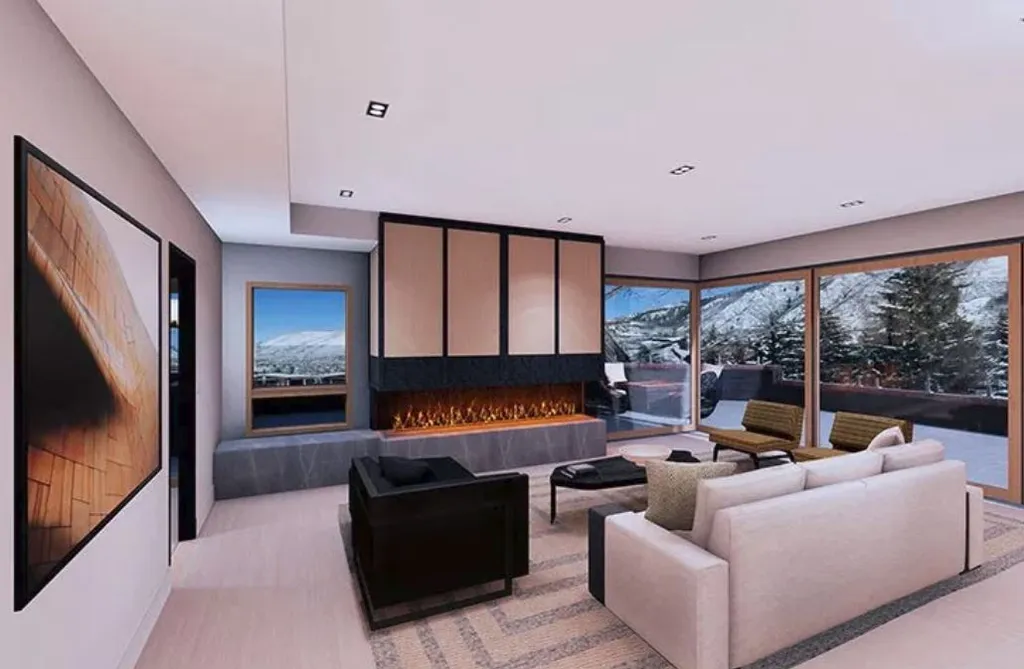One of the first steps for a prospective real estate buyer or tenant is to get an accurate sense of the unbuilt property they are interested in. Specifically, what will it look like, of course. But also, at a deeper, subconscious level, whether or not it connects with them emotionally. They want to imagine how it will feel to actually occupy the property.
For the longest time, watercolor paintings were the primary means for property developers and brokers to showcase their new development properties.
Paintings can be incredibly powerful and versatile, which is why they are representative of some of the most impressive artistic works of humankind. A well drawn painting or sketch inherently makes an emotional connection with the viewer that can be quite powerful. Yet, a painting also has an inherent limitation because it is ultimately the painter’s interpretation of the vision for the property, and is static from a single point of view, leaving much to the imagination. Paintings are also time consuming, expensive, and are difficult to iterate onto a matchbuilder’s vision.
Then, in the 90s, computers had advanced enough that we began a gradual shift from paintings to 3D computer generated (CG) renderings. And this is essentially how all unbuilt real estate developments are showcased today. They are much more true to the the builder’s vision due to accurate 3D modeling, photo realistic materials and lighting simulation, and the ability to iterate via CG software.
This of course also made it possible to overwhelm prospective buyers with a sea of similar images that has made it harder and harder to stand out. Additionally, such 2D and 3D renderings on a 2D screen just don’t have the emotional contact with a potential buyer. Furthermore, they give no sense for scale, and scale is important in how humans relate to their environment. Everything in the real world is understood from that first-person, human perspective. Lastly, renderings can easily be “cheated” to exaggerate the spaciousness of a property by using wide angle lenses.
But all that is changing.
Today we are at the cusp of yet another revolution in the way new development properties can be showcased in a way that is true to the builder’s vision and yet offers a never-before-possible emotional experience for the buyer. This is the promise of room scale, immersive Virtual Reality (VR) experiences of an unbuilt property.
VR has often been described as an empathy engine. By wearing a VR headset, one can be completely immersed into an environment as though it were happening in real-life, and thus connect with that virtual environment in an emotional, empathetic way that was never possible before
Additionally, since the VR property is computer generated, it can be easily modified to match the design vision as closely as possible. Even better, once built out, it is possible to try out different palettes, view angles, lighting solutions, furniture layouts and styles, and other such options through user control within the VR environment.
As an example, my company Outer Realm recently implemented room scale VR tours for high-end luxury properties in Aspen Colorado, with broker Andrew Ernemann and developer Aspen Starwood properties.This has been a huge success with prospective buyers and has translated into real business value. You can check out their virtual reality showroom here here. And also get a virtual tour of one of their properties here, although the best experience is through an actual VR headset.
The benefits to brokers and developers is that by showcasing homes virtually they can list their properties earlier, sell faster, and decrease development risk. And potential buyers and tenants can have a rationally informed and yet emotionally compelling experience of the property before making a decision. For brokers looking to win more exclusive listings, offering Virtual Reality tours as part of their services is a no-brainer way to differentiate.
Using VR to showcase unbuilt properties is undoubtedly a game changer.
We have come a long way from low resolution screens and clunky headsets of the past. The promise of Virtual Reality is finally becoming true. A whole generation of younger clientele comfortable with using VR and other technology is now of home buying or apartment leasing age, and real estate brokers and developer who move early to satisfy them will gain a huge competitive advantage. As a bonus, such brokers and developers will stand out as thought leaders, further opening up business opportunities.
The use of VR across industries and society is inevitable. And just as 2D renderings replaced watercolor images, 2D renderings will be steadily replaced by VR over the coming 2-3 years.
David Gull, the CEO of Outer Realm, has experience delivering over 500 New Development Virtual Tours to date. He has a unique combination of Design & Technical Expertise as a Licensed Architect and Technology Executive.
Outer Realm LLC is an LA-based startup that specializes in building customized immersive VR tours of unbuilt/under-development real estate properties. To explore Outer Realm’s suite of VR services for the real estate industry, visit the official company website.
Disclosure: This is an unpaid guest contribution from David Gull of Outer Realm. Additionally, Upload is listed as a “key customer and partner” on the Outer Realms website, but that capacity exists entirely separate from the editorial website.






























